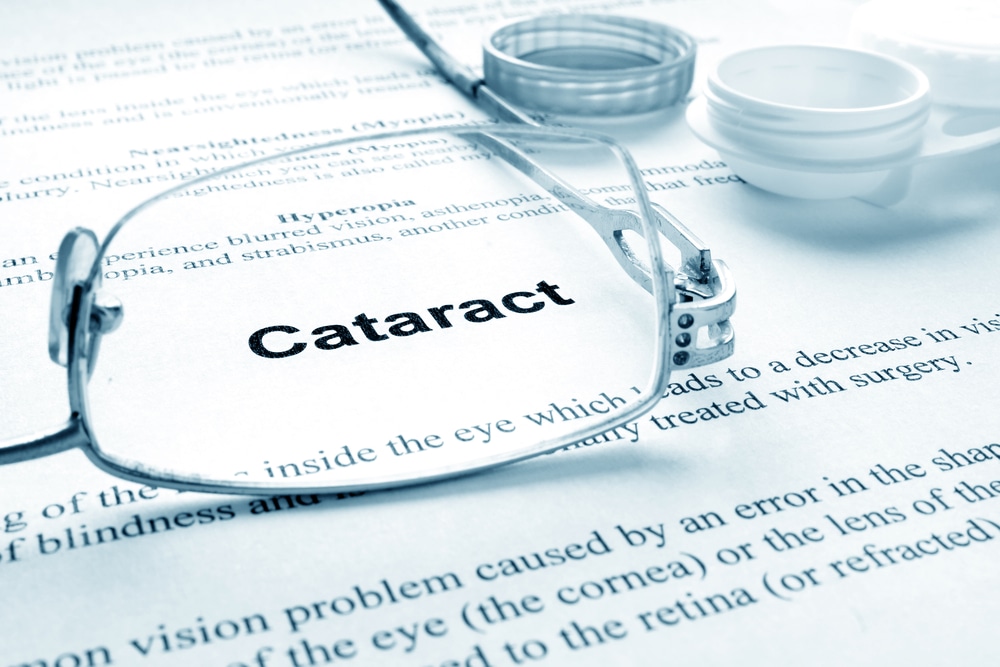Preoperative Testing

Cataract surgery is safe and effective and is performed in an outpatient setting at local surgical centers. During cataract surgery, the cloudy natural crystalline lens is removed and replaced with an implant or intraocular lens (IOL).
During your examination, your surgeon will help you decide which IOL is right for you. Your surgeon and the staff will then discuss the risks, benefits, and alternatives of surgery. They will answer all of your questions and do their best to alleviate your fears and concerns.
IOL Calculation
IOLs come in different sizes and configurations. In order to determine the best type of IOL, advanced optical imaging is performed to measure the length and curvature of the eye. Complex mathematical formulas are then used to determine the optimal IOL for each eye.
Limitations in IOL Calculations
Despite the wonderful advances with cataract surgery, it is also important to realize that the main goal of cataract surgery is to make you see better. Every effort will be made to reduce or eliminate your need for glasses; however, some patients will still need to use vision correction. It is important to realize that a 0.3 mm difference in biometry measurement is equal to one diopter of glasses refraction. To put that measurement in context, 0.3-mm is less than the thickness of the letters on this page. EDOW uses the finest available technology for biometry measurement to provide you the best possible care.
Also, it is important to understand if you are highly nearsighted or farsighted and develop a cataract in only one eye, the intraocular power must be calculated to balance with the unoperated eye. This is related to your need for eyeglasses in the unoperated eye. The difference in the correction between eyes cannot be too great. In those instances, it may cause an imbalance in your binocular vision. If this applies to you, it will be explained in detail by your surgeon.
The alternative to intraocular lens implantation at the time of cataract surgery is to omit the lens implant and for you to use a contact lens or eyeglasses to get clear vision after the surgery. Contact lenses require daily insertion and removal as well as periodic replacement. Vision through the contact lenses used after cataract surgery is magnified about 8 to 10 percent. Eyeglasses magnify vision about 25 percent. For these reasons, contact lenses or spectacles are no longer used except in unusual circumstances.
Do I Need Additional Tests?
Dense Cataracts: If your cataract is very dense, the surgeon may not be able to visualize the back of your eye. Using a different ultrasound, a B-scan, the eye can be evaluated. This type of ultrasound displays internal anatomy of the eye, allowing for evaluation of the different structures. This test allows the surgeon to make certain there are no large abnormalities such as retinal detachments or tumors, which would preclude the need for elective cataract surgery.
Prior Refractive Surgery Patients (LASIK): For individuals who have had refractive surgery (LASIK, PRK, INTACS, or RK), extra testing will be required because these procedures flatten the cornea. This flattening makes the IOL calculation more challenging. Dr. Clinch, Dr. Kang, and Dr. Shah specialize in these types of procedures.
Our ophthalmologists also request that you try to obtain your old medical records prior to refractive surgery as well as the operative and postoperative notes from your surgery.
Preoperative Surgical Clearance
Many patients are concerned that they may be too old or ill to have successful cataract surgery. With the modern techniques utilized by the EDOW surgeons, almost all patients meet the criteria for these outpatient procedures. We have operated on many patients over the age of 100!
Prior to eye surgery, you will need to see your regular physician for surgical clearance. Our surgical coordinator will give you the necessary forms. Your physician will evaluate your overall heath and order some routine tests. If you do not have a regular doctor, the staff and doctors of EDOW can assist you with finding a doctor close to your home.
